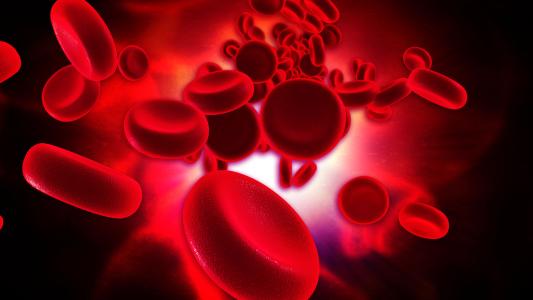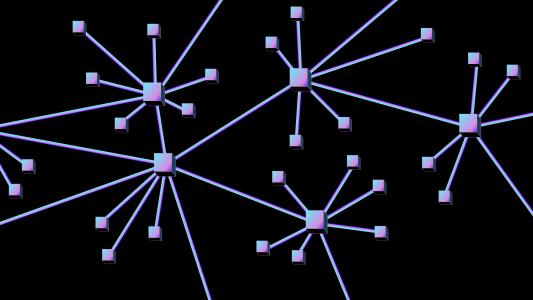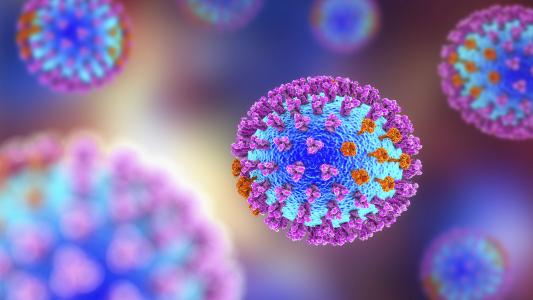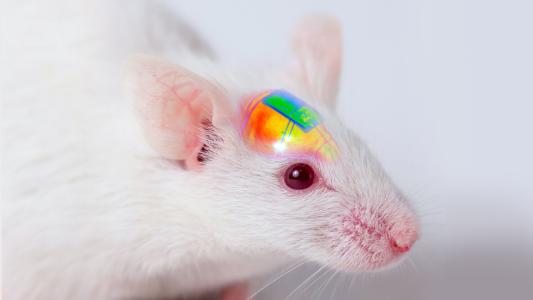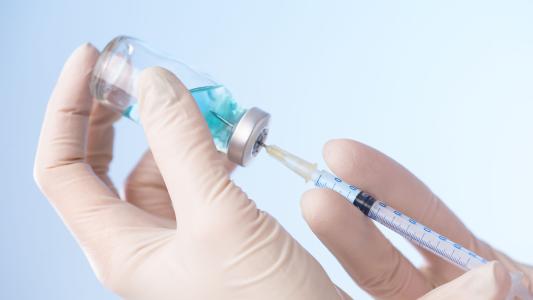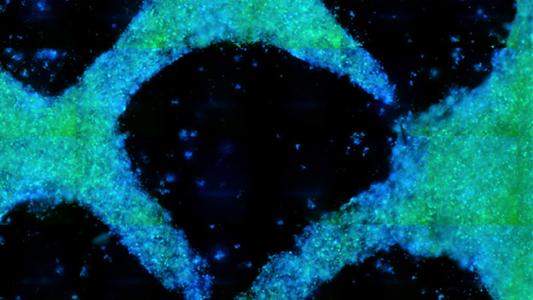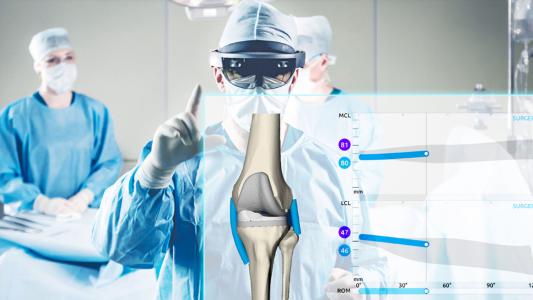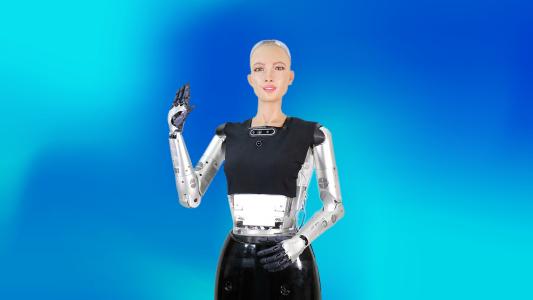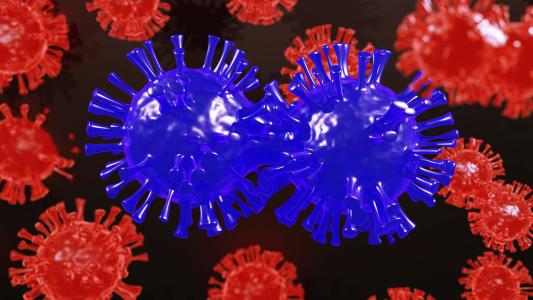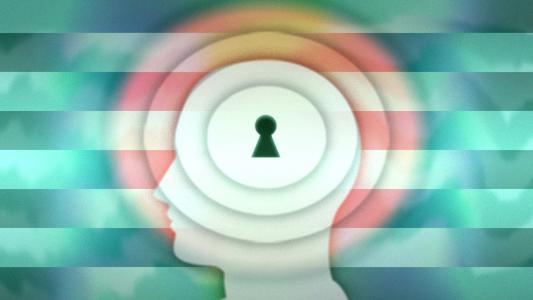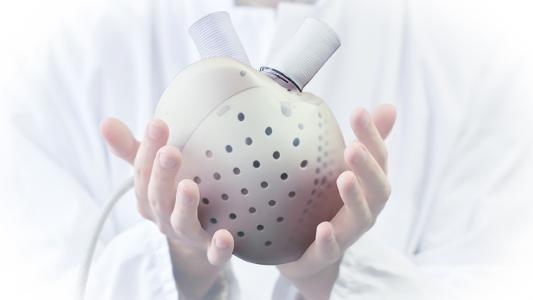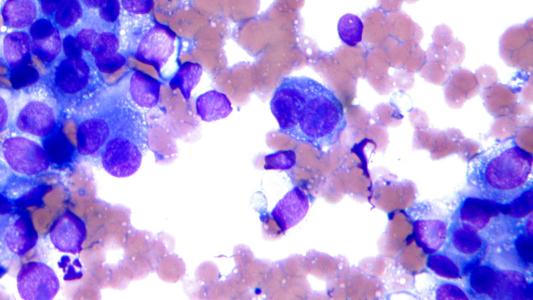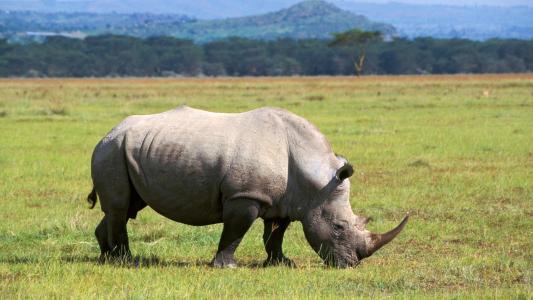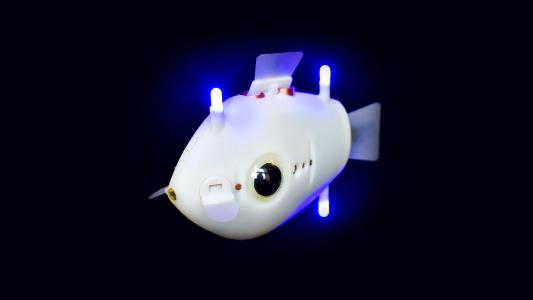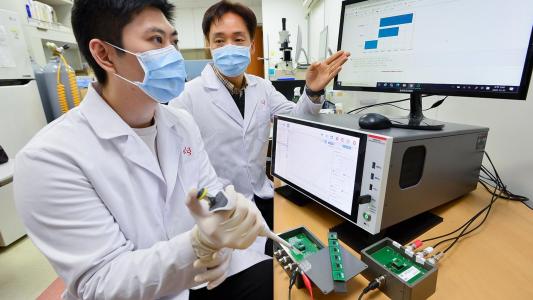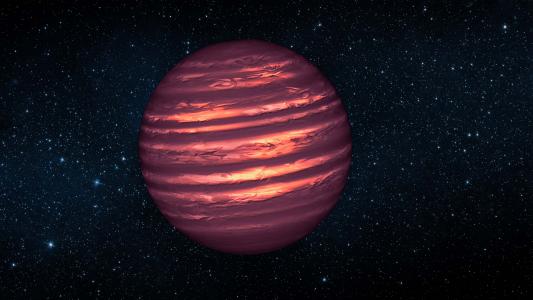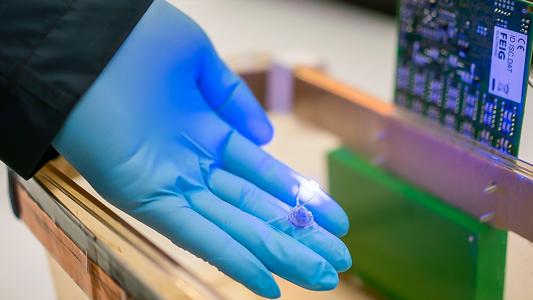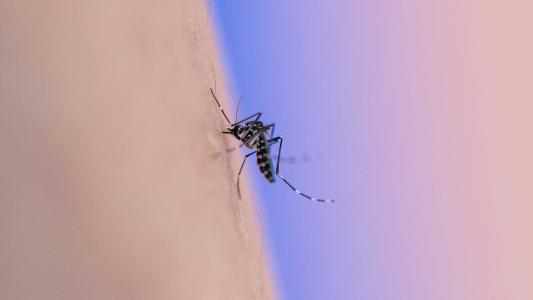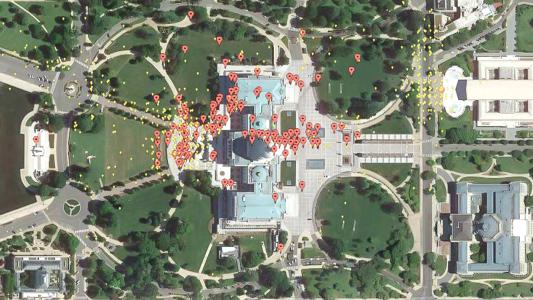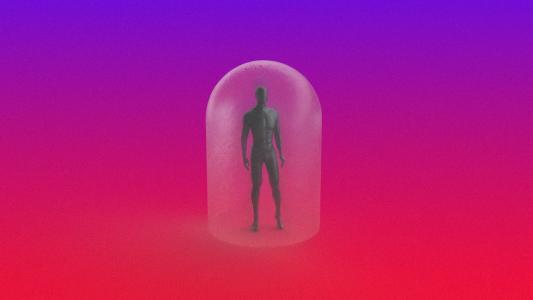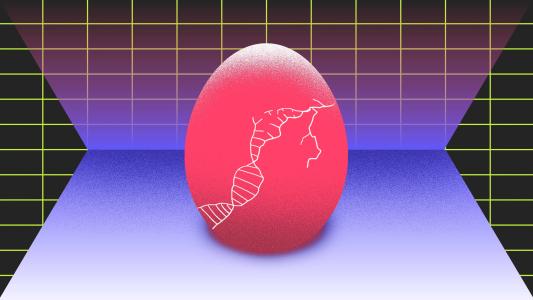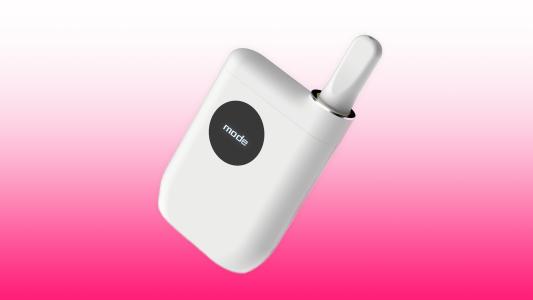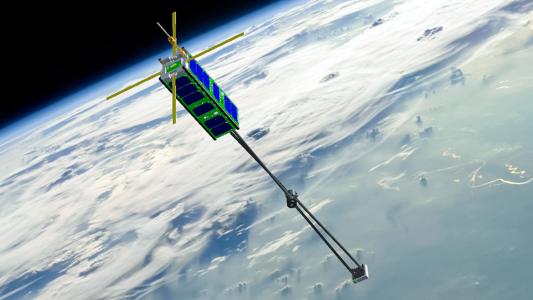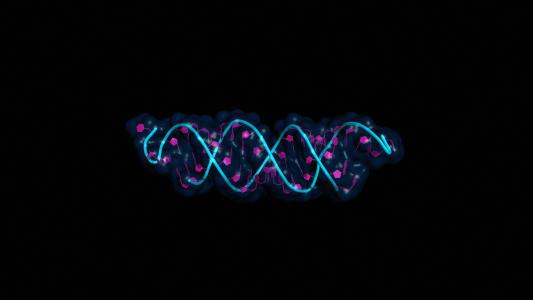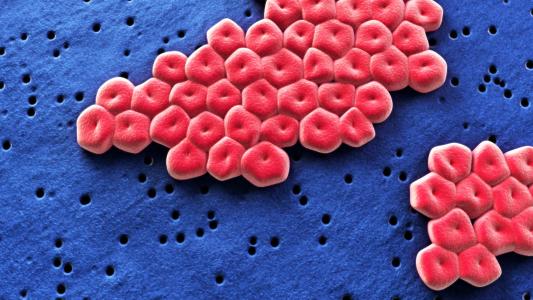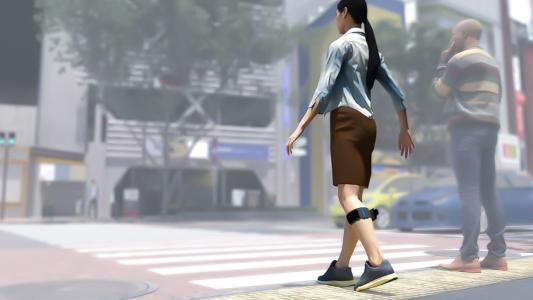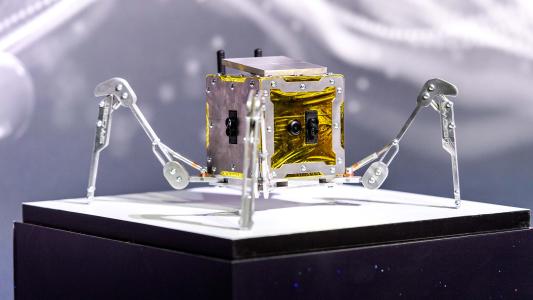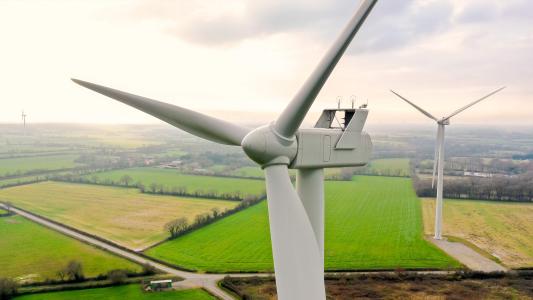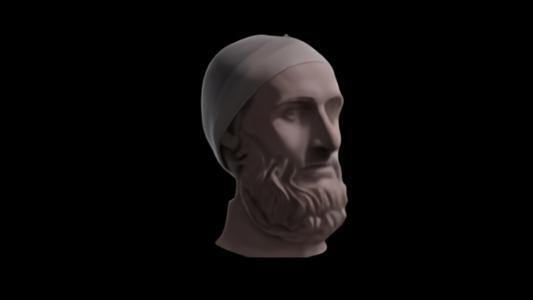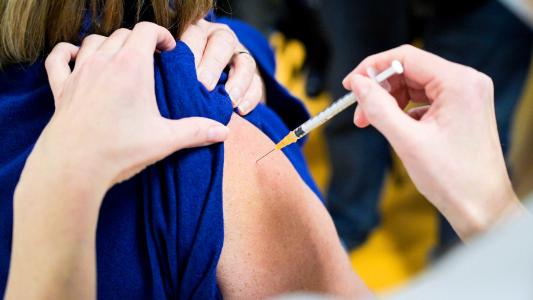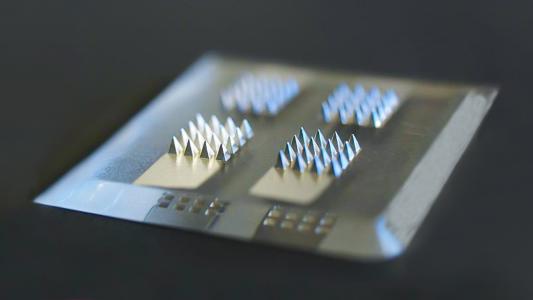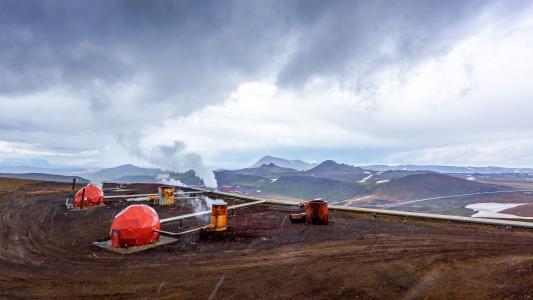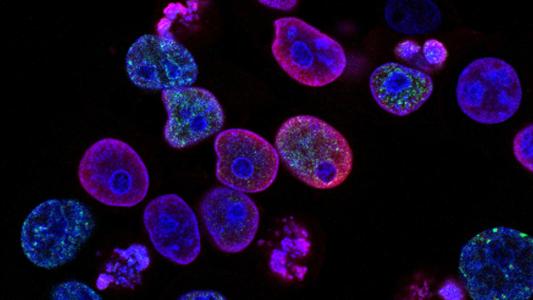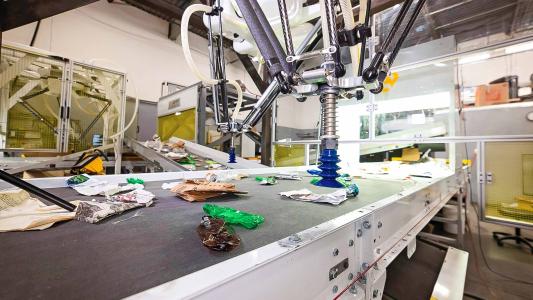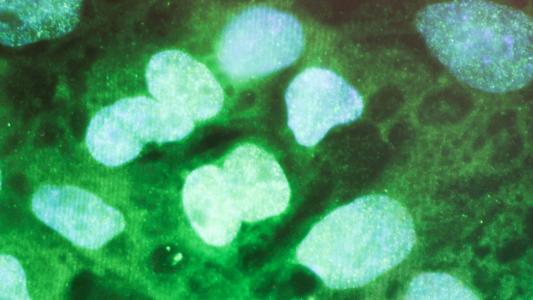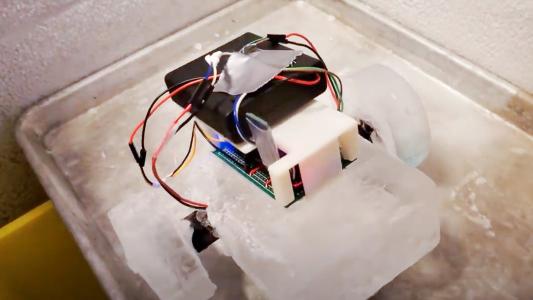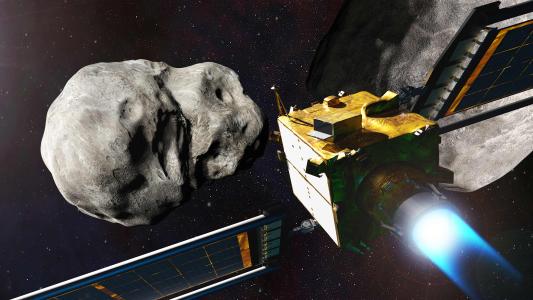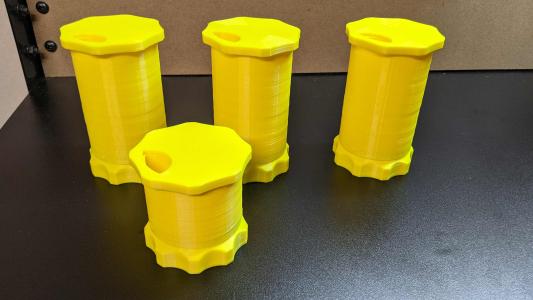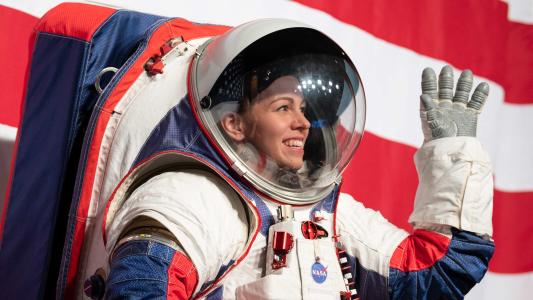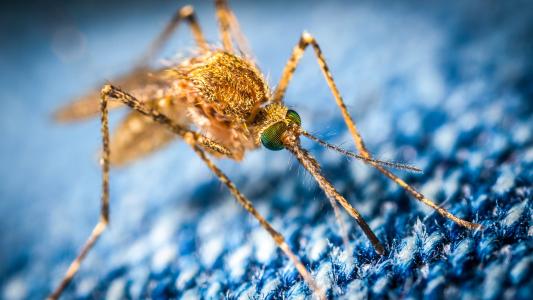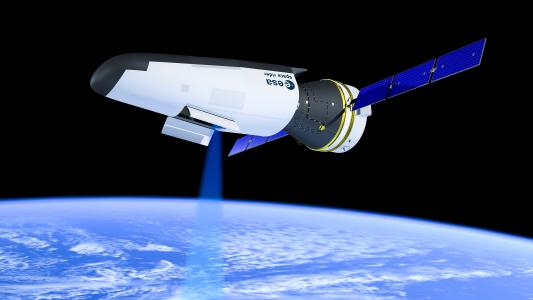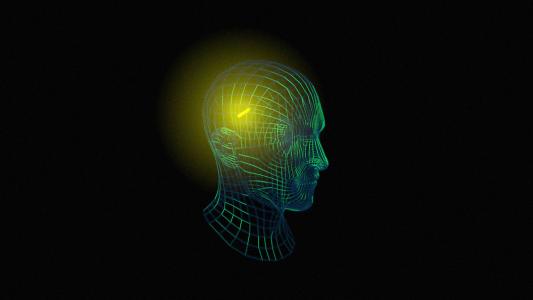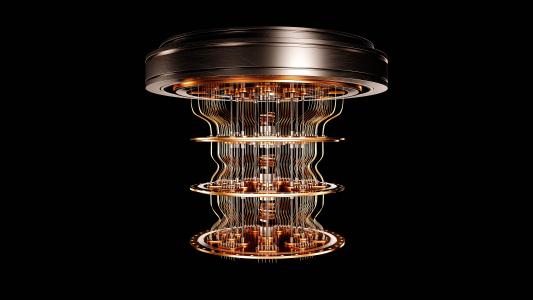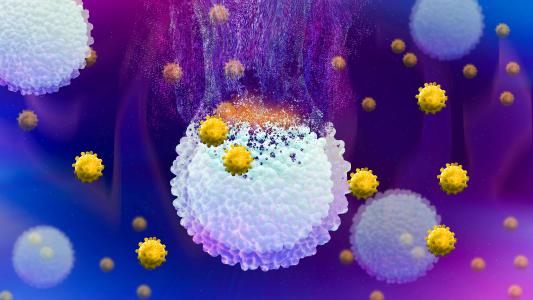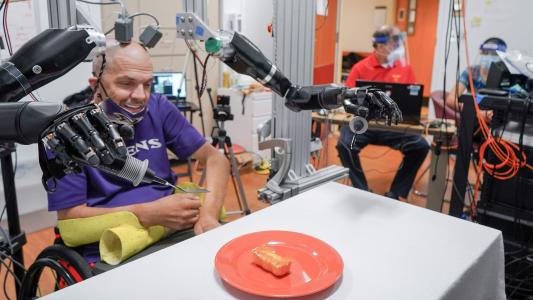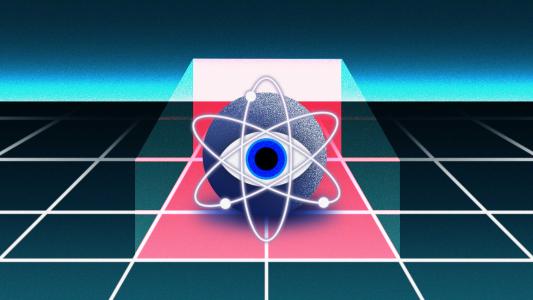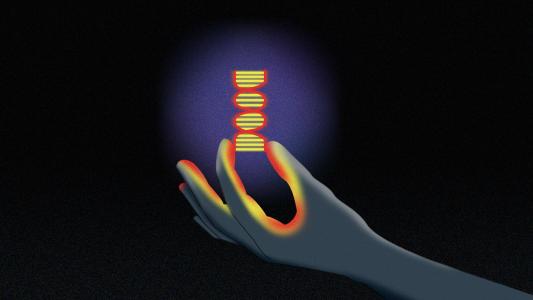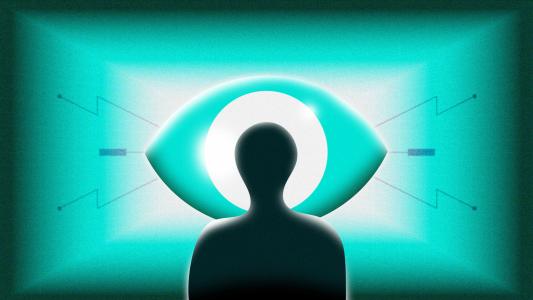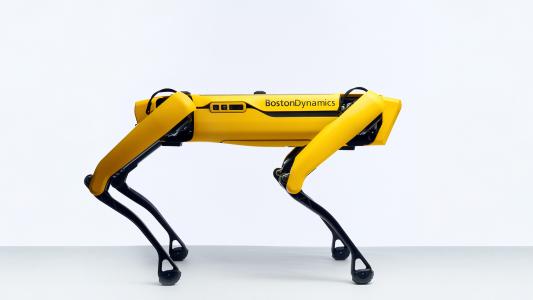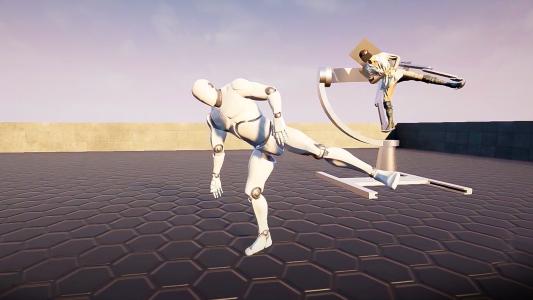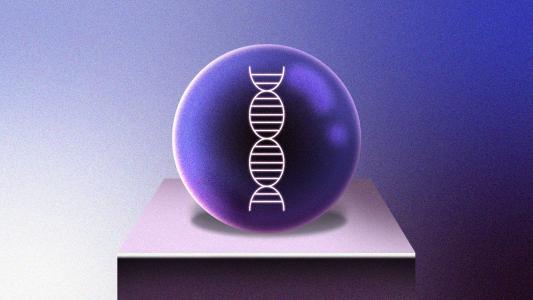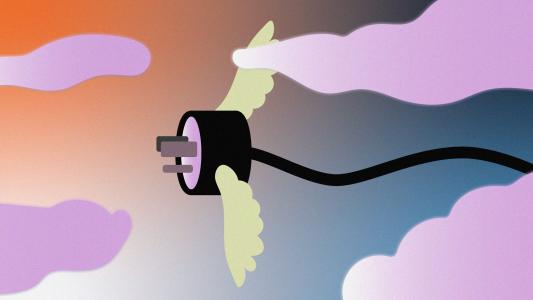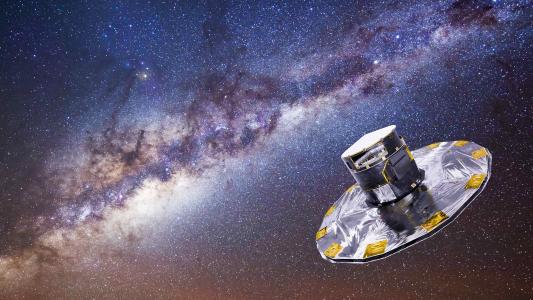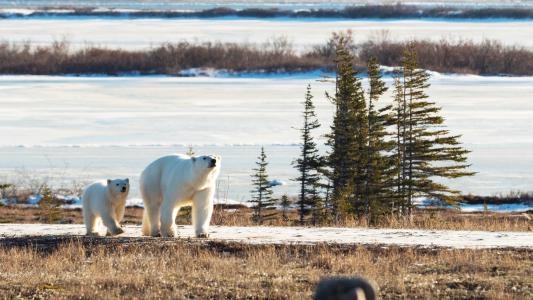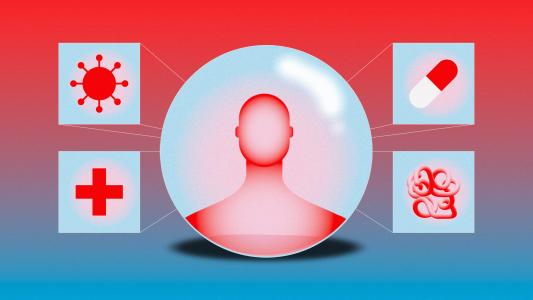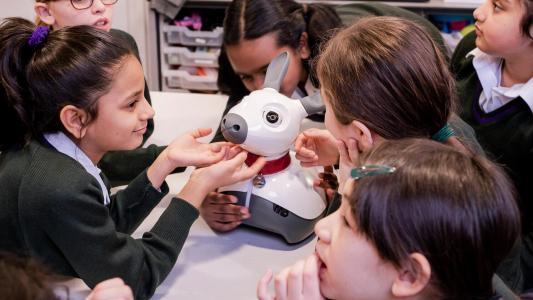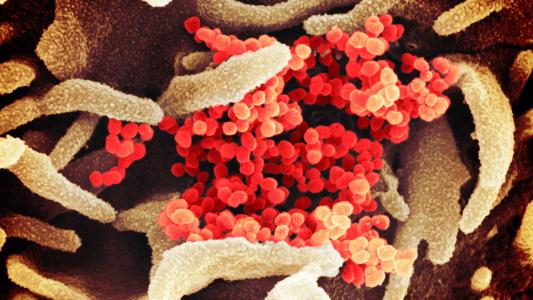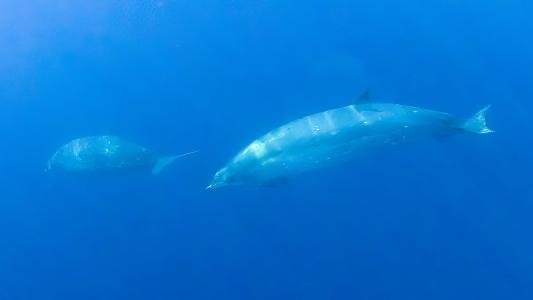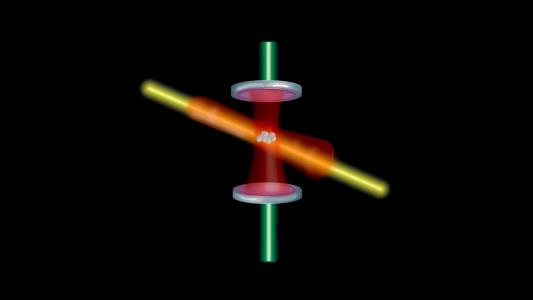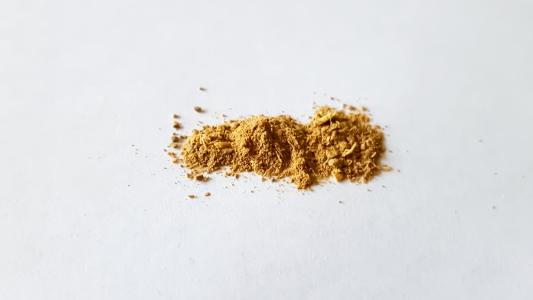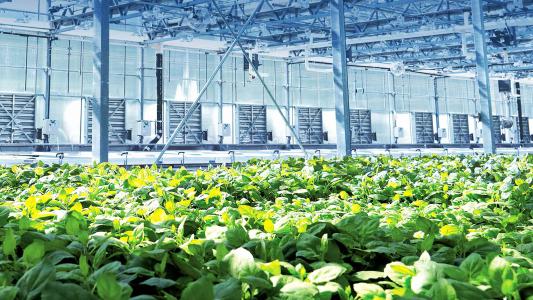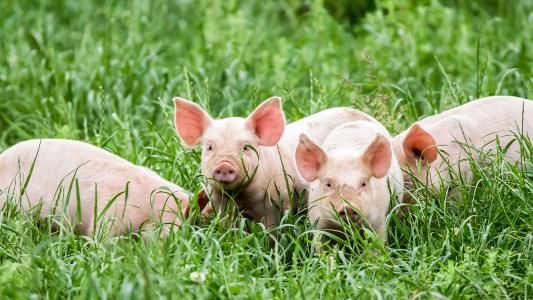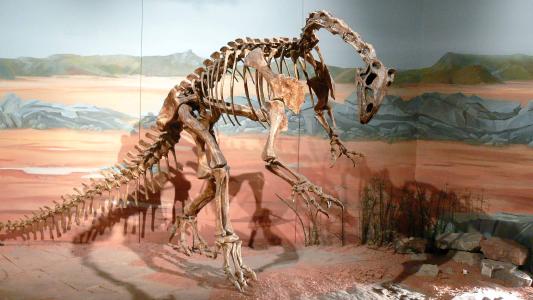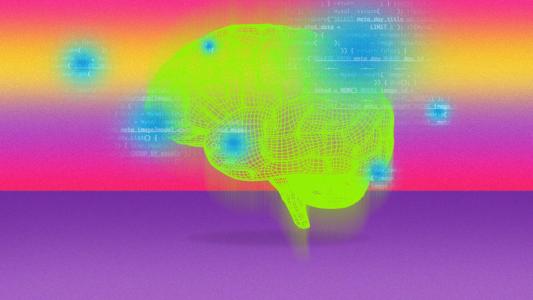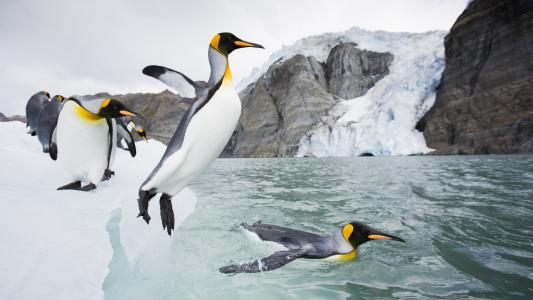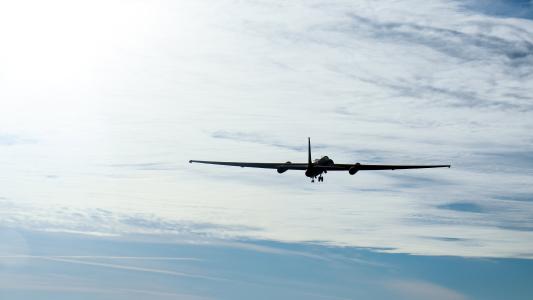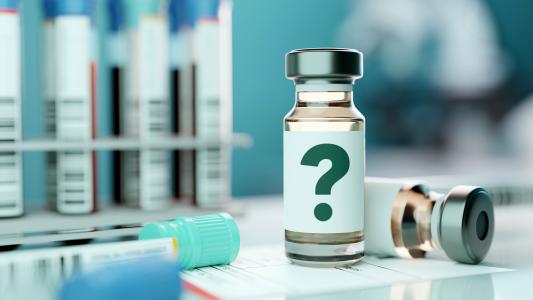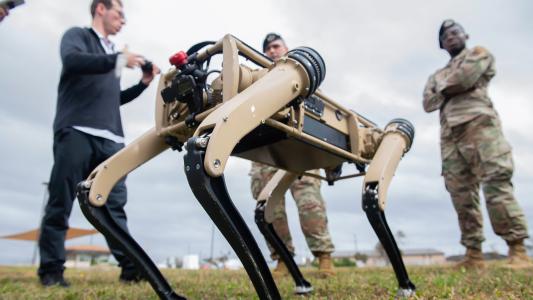Designer DNA hunts down multiple myeloma in mice
Researchers have developed designer DNA that kills cancer stem cells at their roots, showing early signs of success preventing relapse in mice.
Can we decentralize the internet?
A decentralized internet could make the internet faster and less vulnerable to censorship.
New vaginal ring reduces risk of HIV and pregnancy
A vaginal ring that serves double duty as both long-term contraception and convenient HIV prevention showed promise in a small study.
MIT's AI predicts new strains of HIV, coronavirus
As coronavirus mutations pop up around the world, researchers at MIT are using language-recognizing AI to try and predict what could be next.
New brain implant can be charged wirelessly
A new brain implant contains wireless charging tech that could eliminate the need for surgeries to remove and replace drained batteries.
Mount Sinai is opening a psychedelic research center
A pacesetting institution, the Icahn School of Medicine at Mount Sinai is opening a psychedelic research center focusing on MDMA and trauma.
This cloudless “hot Jupiter” is unlike any known exoplanet
Astronomers have discovered a first-of-its-kind cloudless hot Jupiter — and it could expand our understanding of exoplanet formation.
Predicting which birds can cause Lyme disease spread
Lyme disease spreads via infected ticks, some of whom pick it up from birds. But which birds may carry the disease to new places?
Johnson and Johnson's coronavirus vaccine is 66% effective
Data from phase 3 trials of Johnson and Johnson's coronavirus vaccine suggests the vaccine is ready to go to the FDA for approval.
Lab-grown wood is taking shape at MIT
A newly demonstrated technique for making lab-grown wood could overcome several shortcomings of traditional logging, if it's scalable.
First AR-assisted knee replacement in America is a success
The United States’ first AR-assisted knee replacement surgery was a success, marking another milestone for the use of AR in healthcare.
Sophia the Robot will be mass-produced this year
Hanson Robotics is going to begin mass-producing Sophia the robot in 2021, making the social robot available to help combat the pandemic.
Moderna COVID-19 vaccine booster targets mutant strain
Moderna is trialing a COVID-19 vaccine booster designed to increase protection against a South African strain of the coronavirus.
Deep brain stimulation can treat OCD without drugs
Stimulating the brain with electricity could be a treatment for OCD. Researchers test electrical stimulation to reduce compulsive behavior.
Total artificial heart approved for sale in Europe
The European Commission has approved the sale of Carmat’s total artificial heart, which is designed for patients with end-stage heart failure.
Personalized skin cancer vaccine is made from tumor cells
A personalized skin cancer vaccine developed from melanoma survivors’ own tumor cells has shown promise in a small trial.
Can science save the northern white rhino?
The northern white rhino species is down to just two members, both female. Can science bring it back from the brink of extinction?
An AI has discovered new craters on Mars
An AI trained to spot signs of fresh craters on Mars in photos of the Martian surface has already discovered dozens of new impacts.
Scientists hack kombucha for new materials
Scientists are using a modified kombucha SCOBY to create materials that sense pollutants, purify water, or make damage-sensing packaging materials.
Doctors use AR surgery to implant 3D-printed eye socket
Doctors in Israel used a combination of AR surgery and 3D printing to repair a patient’s damaged eye socket quickly and efficiently.
We're floating in 6,000 tons of junk
There's a lot of trash in outer space. We need to clean it up before it becomes unusable.
Bots can now swim like a school of real fish
Bluebots, robotic fish developed at Harvard, are the first to demonstrate complex swarm behaviors underwater.
AI makes nearly 100% accurate cancer diagnosis from urine
A new AI-based technique can make a nearly 100% accurate prostate cancer diagnosis from a urine sample, potentially saving patients from unneeded biopsies.
New scooter battery can charge in 5 minutes. Can it transform electric cars?
StoreDot's battery fully charges in just five minutes, and it can be manufactured on the same production lines as today's EV batteries.
This urban park used to be an airport runway
To provide cities with more green spaces, designers turned a former airport runway into an urban park and an abandoned mall into a recreational lagoon.
Citizen scientists helped NASA map our cosmic backyard
NASA was able to create a highly detailed 3D map of nearby brown dwarfs thanks to the efforts of 150,000 citizen scientists.
Stomach implant tells your brain you're not hungry
A tiny implant uses LED light stimulation to stave off hunger, offering a new weight loss option, and gastric bypass alternative, for people suffering from obesity.
New discovery could stop dengue’s “breakbone” fever
Making a dengue vaccine is difficult. It’s early, but a new antibody that targets a protein the virus makes instead of the virus itself may be a solution.
Interactive map puts Capitol Hill riot videos into context
The developer Patr10tic has used metadata from Parler to create an interactive map linking each of the Capitol Hill riot videos to its exact location.
Vaccines and recovery both provide strong COVID-19 immunity
Natural COVID-19 immunity — the kind coronavirus survivors have — is about as robust as the immunity prompted by vaccines.
Autonomous trucks are taking to the highways
Self-driving cars get all the love, but autonomous trucks are already hitting the road, with a “driver-out” demonstration scheduled for 2021.
Base editing could cure a host of genetic diseases
Base editing has proven useful for correcting disease-causing point mutations in animals — and now, human trials are on the horizon.
Smart vape pen claims to solve the cannabis dosing problem
To solve the cannabis dosing problem, the MODE smart vape vibrates when a person should stop inhaling and again when they should exhale.
Scientists may have found the hum of the universe
Scientists may have recorded the "hum" of the universe for the first time by measuring irregularities in gravitational waves.
Moderna is developing an mRNA vaccine for HIV
Moderna is using the same technology behind its COVID-19 vaccine to develop an mRNA vaccine for HIV.
Tiny satellite uses Earth’s magnetic field to generate thrust
Students are sending a CubeSat to space. The nanosatellite will test a propulsion method that uses Earth's magnetic field to maintain low earth orbit.
Beyond COVID: mRNA vaccines may treat cancer and more
The technology used to make the COVID-19 vaccine could be used to treat other diseases too.
One robot was able to watch another bot and predict its actions
A Columbia University study suggests that empathy between robots may be possible — and the skill could make the bots more useful to humans.
Phage therapy kills superbug behind many ICU infections
Combining a bacteria-killing virus and an antibiotic was able to wipe out an infection of the superbug A. baumannii in mice.
Nerve-stimulator helps people walk after MS and strokes
The EvoWalk wearable uses electrical stimulation, sensors, and AI to combat foot drop, a condition commonly linked to MS and strokes.
This spider-like moon rover will explore lunar lava tubes
A spider-like moon rover heading to the lunar surface in 2021 is designed to explore the underground lava tubes in which astronauts might one day live.
Wind turbine blades are a growing waste problem
Using decommissioned wind turbine blades to build bridges, buildings, and more could eliminate one of the biggest disadvantages of wind energy.
New AI can draw pictures, inching closer to humanlike smarts
OpenAI's two new machine learning algorithms improve computer vision and can use text cues to draw unique and often offbeat images.
Should we delay the second doses of COVID-19 vaccines?
As vaccination campaigns begin, researchers are divided over whether the two-dose strategy should be delayed to get more people’s first dose done quicker.
Smart vaccine device could speed up development process
An in-development smart vaccine device uses a microneedle patch to both deliver a vaccine and measure the immune response it generates.
Geothermal energy is on the verge of a big breakthrough
Geothermal energy may be the key to bringing reliable, clean energy to the world.
Cancer cells can hibernate to escape chemotherapy
A new study has found evidence that cancer cells hibernate, slowing down their division and waiting out the harsh environment of chemotherapy.
Recycling robot keeps waste out of landfills
AMP Robotics has developed a recycling robot that uses AI to sort recyclables twice as quickly as humans can.
Scientists observe cells reacting to a magnetic field for the first time
Scientists aren’t sure how animals sense magnetic fields — magnetoreception. New observations of living cells reacting to magnetic fields may hold a clue.
California city ends its chronic homelessness
Bakersfield, California, has effectively ended its chronic homelessness through an initiative focused on the collection of real-time data.
Quantum teleportation demo sets new accuracy record
A quantum teleportation breakthrough at Fermi National Accelerator Laboratory puts us one step closer to a super-fast, super-secure quantum internet.
New COVID-19 treatment uses stem cells
Umbilical cord stem cells may provide life-saving care for people with a serious case of coronavirus.
Robot made of ice can repair and rebuild itself
A team of researchers wants to build robots out of ice and send them to space. The icy bots can use found materials to rebuild themselves.
Transparent solar windows could be coming soon
Solar power is abundant, but the dark panels pose a design problem. A new generation of transparent solar panels could make house-powering windows and phone screens a reality.
The most anticipated space missions of 2021
The list of 2021's most exciting space missions includes several Mars orbiters, a couple of moon shots, and the launch of an asteroid-deflecting spacecraft.
TikTok users rally to help elite athlete with Parkinson’s
TikTok users are rallying to help elite athlete Jimmy Choi by designing a pill bottle that's easier to use when his hands shake due to Parkinson’s disease.
NASA's next-gen spacesuit
NASA is developing a next-generation spacesuit called the xEMU for upcoming missions to the moon and, eventually, crewed trips to Mars.
A “self-deleting” gene drive to end mosquito-borne diseases
A gene drive designed to remove itself from an insect population after a few generations could help bring an end to mosquito-borne diseases.
ESA is building its first reusable spaceplane
ESA is officially building Space Rider, a spaceplane designed to give scientists cheaper access to microgravity for their experiments.
These brain implants can predict an epileptic seizure days in advance
For the first time, a study has shown that brain activity could be used to forecast the onset of epileptic seizures several days in advance.
Quantum computing: Explained
Quantum computing is the holy grail of computer science. Here's everything you need to know about how it works — and why it will be world-changing.
New findings could help wine survive climate change
Climate change is altering wine making as we know it. Researchers at UC Davis have identified what makes some grapes more resistant to water stress.
A cancer immunotherapy technique may prevent diabetes
Engineered immune cells can fight off rogue T cells which damage the pancreas and cause type 1 diabetes.
Scientists put bees in little reflective “vests” for bee tracking
Bee tracking is difficult and expensive, and smaller bees are left out. Lightweight, inexpensive tags may be a solution.
Quadriplegic man, using two robot arms, can feed himself again
A man paralyzed from the neck down used a brain computer interface to control two robot arms — a big step in the field of mind-controlled prosthetics.
Ice Age wolf mummy discovered almost 100% intact
An almost perfectly preserved wolf mummy discovered in the Canadian tundra is giving researchers a glimpse into the life of an ancient wolf.
Physicists are starting to harness the power of deepfakes
Generative adversarial networks are the scary AI producing deepfakes. But they have other uses too, and physicists are starting to harness their power.
The next car you purchase could include 3D printed parts
Automakers are relying more heavily on 3D printing, and for drivers, that means more customization options.
5 awesome space exploration achievements of 2020
2020 was a big year for space news. Here are five achievements in space exploration that were particularly awesome.
Scientists are using old spy satellite photos to study ecological change
Researchers are using new image processing techniques designed for drones to study declassified, Cold War spy satellite photos for ecological change.
Just how are deepfakes made, anyway?
Capable of creating incredibly realistic false data — most infamously of famous people — deepfakes are a powerful tool.
First-of-its-kind app lets scientists analyze DNA on the move
Genome sequencing tech is getting more portable. Now, there’s a genome analysis app that puts the ability to study those genomes in scientists’ pockets.
This may be the 3D-printed submarine of the future
Using unique construction techniques, this 3D-printed submarine may set the pace for the building of large AUVs to come.
New optical sensor imitates the human eye
Researchers have created an optical sensor, designed to mimic the human eye. The team says this is a major breakthrough in neuromorphic computing
NASA scientists want to send this robot dog to Mars
A modified version of Boston Dynamics' robot dog Spot could be the ideal Mars rover for exploring caves and other underground structures.
These chatbots provide genetic counseling services
Genetic counseling services are in high demand. Now, chatbots are providing some of those services, helping patients navigate DNA testing.
This VR exoskeleton lets you actually run through virtual worlds
A VR exoskeleton called the Holotron works with a person’s entire lower body to let them control the locomotion of an avatar in VR.
CRISPR's big year: top breakthroughs of 2020
2020 was a big year for the gene-editing tool CRISPR. It was used to cure disease, edit DNA in a human's eye, and even gene-edit pigs to grow suitable organs to transplant into humans.
Electric planes will bring cheaper flights and less CO2
Electric aviation would mean less CO2 emissions and cheaper airfare — but batteries still aren't powerful enough to compete with fuel-filled commercial jets.
See the Milky Way 1.6 million years from now
Using data from the Gaia spacecraft, ESA scientists predict where 40,000 stars in the Milky Way will be 1.6 million years from now.
We need a better way to track polar bears. This father and son found a way.
A father-son duo has teamed up to develop four different temporary tracking devices being tested by polar bears in the far North.
These are the medical breakthroughs that inspired us in 2020
2020 has put medicine to the forefront like never before. Freethink’s B. David Zarley looked back on the year and chose three medical developments that inspired him.
The best therapy dog may be a robot
A life-life robot dog might be an effective — or even preferable — alternative to a living therapy dog, according to a new study.
Want better science? Learn how to lie (with magic).
Some experiment designs need to deceive. These former magicians have some advice.
The new coronavirus mutation: What we know & what we need to figure out
A new coronavirus mutation is spreading quickly in the U.K. Here’s what we know about the coronavirus strain and what we need to figure out.
Environmental DNA may prove the discovery of a new kind of whale
Researchers have found what they believe to be a new species of beaked whale. Environmental DNA will be used to prove it.
New atomic clock is the most precise ever created
MIT researchers have created a new kind of atomic clock that exploits quantum entanglement to keep time more precisely.
Tweaked psychedelic drug could treat addiction, depression
A modified ibogaine molecule could be a safer and more accessible treatment for addiction and depression than the psychedelic drug in its natural state.
Tobacco-based COVID-19 vaccine moves to human trials
British American Tobacco has FDA approval to begin human trials on a tobacco-based COVID-19 vaccine that could potentially be stored at room temperature.
Genetically modified pigs get green light from FDA
The FDA has approved Revivicor’s genetically engineered GalSafe pigs for use as food or medical products — a first for genetically modified animals.
This digital dinosaur brain has some “quite surprising” insights
The Bristol dinosaur is like a mini-Brontosaurus, a four-legged plant eater. Or so we thought; a new digital dinosaur brain may change what we know about the dino.
Deep learning vs. machine learning: Explained
Deep learning vs. machine learning AI: what’s the difference?
A massive iceberg is about to crash into an island of penguins
A massive iceberg is expected to hit South Georgia Island. To assess the impact of the collision, researchers are deploying a pair of robot submarines.
An AI co-pilots a military jet for the first time
On December 16, 2020, the Air Force flew an AI co-pilot on a U-2 spy plane. This is the first time that the Air Force completed a military flight with AI.
Your questions about the Pfizer COVID-19 vaccine answered
If you have questions about the COVID-19 vaccine approved for use in the U.S., this is your place to find answers.
Gifts for the biohacker in your life
This year has put health front of mind for many of us. Biohackers are all about knowing themselves, and with this gift guide, you’ll look like you know them.
A universal flu vaccine has aced phase 1 trials
Influenza’s constant genetic shifting means flu vaccines aim at a moving target. But a universal flu vaccine just passed its phase 1 trials.
HIV can hide inside human cells for years. Can CRISPR cut it out?
Using CRISPR to stop the replication of SIV, a primate virus closely related to HIV, researchers may have taken a step to wiping the virus out in the body.
Genetically engineered tomato can grow drug to treat Parkinson’s
The latest biopharmaceutical is a drug for Parkinson’s disease, Levodopa, produced by genetically modified tomato plants.
Robot dogs are being deployed at a US military base
Four robot dogs are heading to a Florida Air Force base to serve as security patrol, marking the U.S. military’s first full-time deployment of a robot dog.
